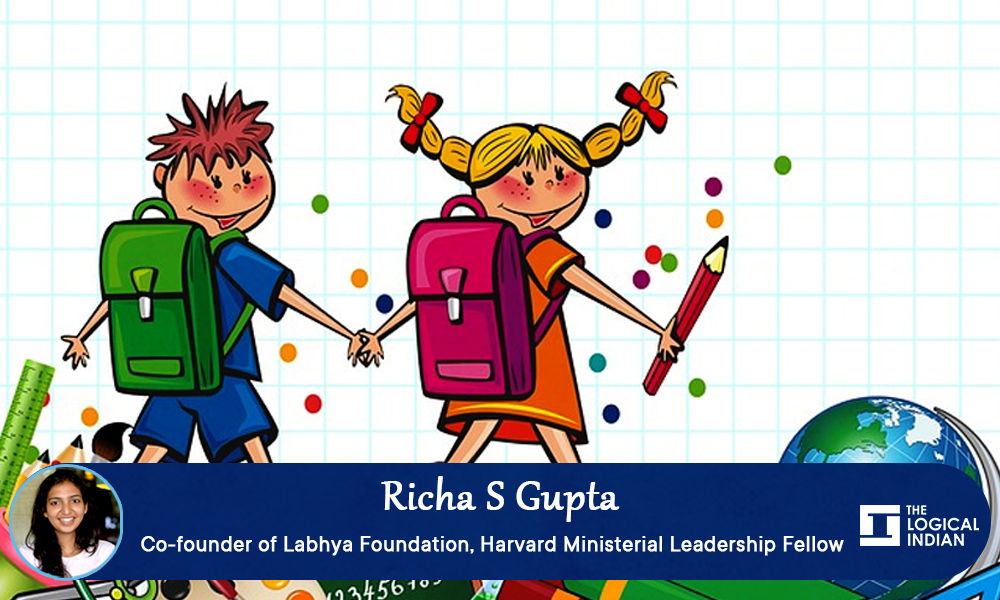
Image Credit: Pixabay
Opinion: Schools, Govt Must Ensure 'Social-Emotional Wellbeing' Of Kids In Post Lockdown Era
India, 26 March 2021 7:36 AM GMT
Creatives : Rajath
A free spirit who find meaning in life with the virtue of creativity and doing job par its excellence, animal lover and traveller by heart.
When schools reopen, it should be more about connecting everybody and making students feel safe, before rushing to compensate for the time lost and finish the pending syllabus.
The COVID-19 induced lockdown, which forced the closure of schools across the globe last year, changed the world of children upside down. It dismantled their daily routine and restricted them within four walls with just a few family members to interact with. This has greatly impacted young minds and triggered several behavioural changes among them, including aggression, distraction and irritability.
In India, the closure of about 1.5 million schools in 2020 impacted 247 million children enrolled in elementary and secondary schools.
As schools are reopening in phases, returning to the classrooms can be an overwhelming experience for many. Students, especially children between 4 and 14 years of age, may not even feel comfortable attending their classes and sharing playgrounds in the post-lockdown era.
A majority of parents are still apprehensive about sending their children to school in these unpredictable times. According to a recent study by UNICEF, one in every four mothers in India said that they were not sure about sending their children back to school.
All these factors hint at a delayed learning process ahead, which can be detrimental to the students' interests. The situation is grave and needs immediate attention. The importance of "social-emotional learning" (SEL) increases manifold in such turbulent times.
While a few organisations have already tied up with some state governments to establish the SEL set-up in schools, more states across the country must take the lead in designing a roadmap for supporting the children emotionally.
Delhi government conducted 'Happiness Classes' even during the pandemic and it deserves appreciation for that. Many others like Uttarakhand tried to help students with animated SEL videos and posters throughout lockdown.
Not just government schools but also private schools across the country need to explore ways to ensure the social and emotional wellbeing of children. It's time to reimagine the curriculum.
The Way Ahead
To come out of this learning crisis, governments need to look at every strategy from the perspective of young minds, which have witnessed a lot in the past one year--educational crisis, emotional crisis, financial crisis, health crisis and alike. It is better to act now before it gets too late.
There is a large pool of organisations and people who could be of help to governments, but there is a need to create a network and an impactful strategy to involve them in propagating SEL. Implementation, monitoring and evaluation strategy must remain in place until we start getting positive results.
Now the big question is: How should a curriculum and pedagogy style look like in the post-pandemic era?
To begin with, the pressure on teachers and students to complete the syllabus is the first thing that needs to be deleted from the education system in India.
When schools reopen, it should be more about connecting everybody and making students feel safe, before rushing to compensate for the time lost and finish the pending syllabus.
SEL has five core competencies, which have assumed greater significance in a world hit hard by the novel coronavirus. Even otherwise, these ideally should be part of all school curricula. The five essential competencies include:
a) Relationship skills-- There has been not much face-to-face interaction in the past year and the skills will help children get used to the new normal.
b) Self-awareness--Children have gone through a wide range of emotions and they need to accurately assess their emotions, strengths and challenges now, to perform better in future.
c) Self-management--It is important for children to learn how to regulate emotions and behaviours in different situations.
d) Social-awareness-- Empathising with others and studying situations can help students evolve better.
e) Responsible decision-making-- Taking meaningful decisions at a young age will help children easily manage difficult situations in life.
To ensure these competencies are inculcated well among children between 4-14 years of age, pedagogical style needs to be made more inclusive and teachers must be trained in SEL techniques.
They should be made familiar with classroom activities that can help each and every child express their experiences of the lockdown and the pandemic situation independently. Teachers, along with parents, can then provide the right guidance for children and also help them navigate their way through the formative years of their lives.
"There is an urgent need to focus on social-emotional skills of young children, especially between 4-8 years of age," stated an ASER-2019 "Early Years" report.
National Education Policy-2020 also focuses on the maximum overall development of students in their early childhood. SEL can change the lives of millions of Indian students for the better by helping them evolve as a critical thinker, responsible decision-maker and socially aware person.
(Author is co-founder of Labhya Foundation, which partners with governments, multilateral organisations & non-profits to co-create scalable social and emotional learning programs across public education systems. She is currently serving as Youth Advisory Board Member, UNICEF India and is also a Harvard Ministerial Leadership Fellow)
Also Read: Why Was There 'No' Bonding Between Govt And Markets Regulator SEBI Over AT-1 bonds?
 All section
All section













